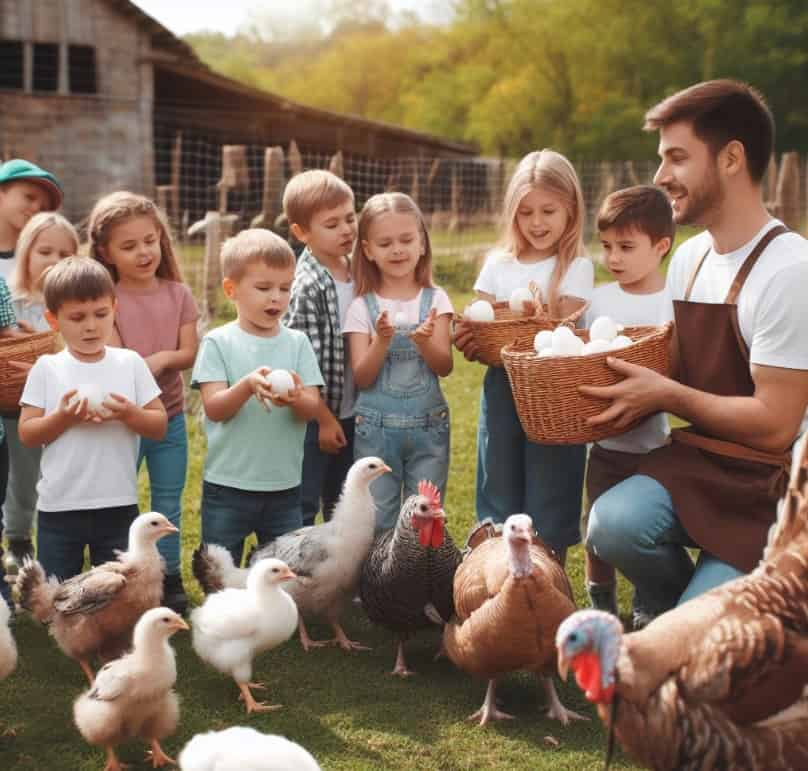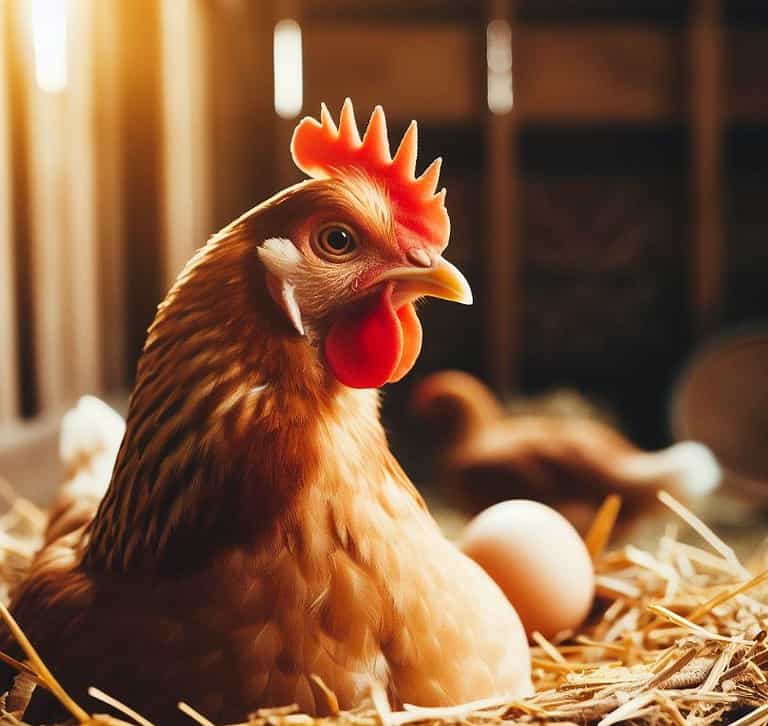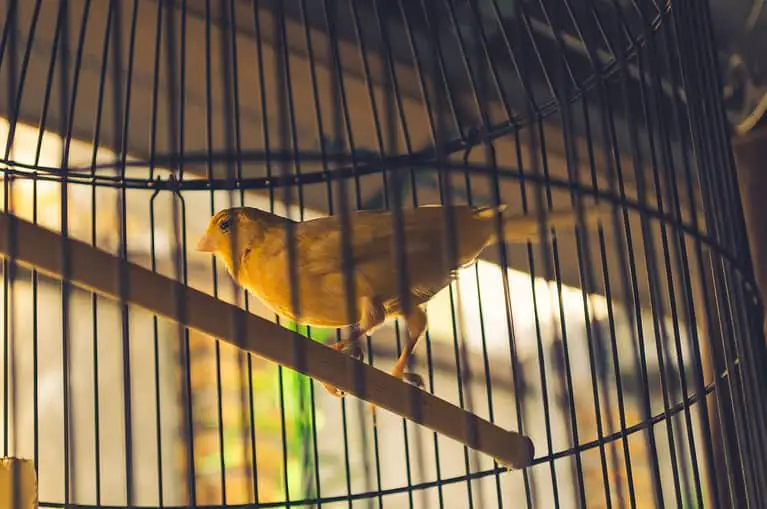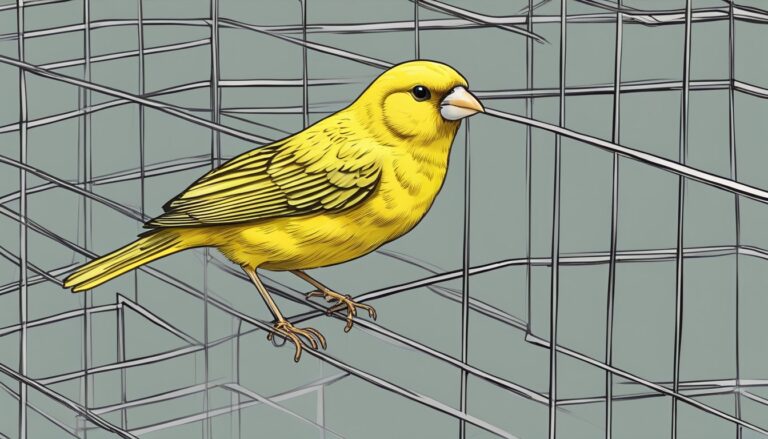Urban Chicken Farming Tips: Small-Scale Chicken Farming in Urban Areas
Ensuring Biosecurity in Urban Chicken Farming
Urban Chicken Farming Tips. Understand the importance of biosecurity measures to prevent the spread of diseases among urban chickens and neighboring flocks.

Biosecurity is of utmost importance in urban chicken farming to prevent the spread of diseases among the flock and neighboring flocks. Implementing effective biosecurity measures is crucial to maintain the health and well-being of your chickens and to protect the poultry industry as a whole.
One key aspect of biosecurity is maintaining a strict control and monitoring system for visitors and employees on the farm.
This includes restricting access to the farm area, providing designated entry points, and requiring proper hygiene protocols such as handwashing and wearing dedicated footwear or protective gear.
By limiting contact with external sources, the risk of introducing pathogens to the flock can be significantly reduced.
Additionally, a comprehensive vaccination program is essential to prevent the outbreak of common diseases in urban chicken farming.
Consult with a veterinarian to develop a vaccination schedule appropriate for the specific breed of chickens being raised.
Regularly inspect the flock for signs of illness and promptly isolate any sick birds to prevent the spread of diseases within the flock.
Good communication with neighboring chicken farmers is also crucial to share information about any potential disease outbreaks and collaborate on disease control measures.
By adopting biosecurity practices such as strict farm entry controls and thorough vaccination programs, urban chicken farmers can effectively minimize the risk of disease transmission, ensuring the health and productivity of their own flock and contributing to the overall biosecurity of the poultry industry.
Health and Disease Management for Urban Chickens
Learn about common health issues that urban chickens may face and how to identify, treat, and prevent them to ensure the well-being of your flock.

Urban chicken farming can be a rewarding venture, but it’s important to understand the common health issues that urban chickens may face.
By being aware of these issues, you can identify them early on and take the necessary steps to treat and prevent them, ensuring the well-being of your flock.
One common health issue that urban chickens may encounter is respiratory infections. These infections can be caused by bacteria, viruses, or environmental factors.
Symptoms may include coughing, sneezing, wheezing, and difficulty breathing. If you notice any of these symptoms, it’s crucial to isolate the affected bird and consult a veterinarian for proper diagnosis and treatment.
Another health concern for urban chickens is parasites such as mites and lice. These pesky creatures can cause irritation, feather loss, and anemia in your flock.
Regular inspection of your chickens and their living quarters can help you identify the presence of parasites.
If an infestation is detected, you should promptly treat your chickens with appropriate medication and ensure clean and sanitary housing to prevent reinfestation.
In order to maintain the health and well-being of your urban chickens, it is important to stay vigilant and proactive in monitoring their condition.
By being knowledgeable about common health issues, you can take swift action to identify, treat, and prevent them, ensuring that your flock thrives in a safe and healthy environment.
- Respiratory infections are a common health issue for urban chickens and can be caused by bacteria, viruses, or environmental factors.
- Symptoms of respiratory infections include coughing, sneezing, wheezing, and difficulty breathing.
- If you notice these symptoms in your chickens, isolate the affected bird and consult a veterinarian for diagnosis and treatment.
- Parasites such as mites and lice can also affect urban chickens. They can cause irritation, feather loss, and anemia in your flock.
- Regular inspection of your chickens and their living quarters is important to identify the presence of parasites.
- If an infestation is detected, promptly treat your chickens with appropriate medication and maintain clean housing to prevent reinfestation.
- Staying vigilant and proactive in monitoring the health of your urban chickens is crucial to their well-being.
- By being knowledgeable about common health issues that may arise, you can take swift action to identify, treat, and prevent them effectively.
Integrating Chickens into Urban Gardens
Discover the benefits of integrating chickens into your urban garden, including natural pest control, soil enrichment.

Urban gardening has gained popularity in recent years as people seek to connect with nature and produce their own food in urban areas.
One way to enhance the productivity and sustainability of urban gardens is by integrating chickens into the system.
Chickens bring a range of benefits to urban gardens, including natural pest control, soil enrichment, and a symbiotic relationship that can enhance the overall health of the garden.
Firstly, chickens are excellent natural pest controllers. They have an innate ability to search for and consume insects, slugs, snails, and other pests that can damage plants.
By allowing chickens to roam freely in the garden, they actively reduce pest populations, decreasing the need for chemical pesticides.
This natural pest control not only keeps pests in check but also contributes to creating a healthier and safer environment for both plants and humans.
Secondly, chickens contribute to soil enrichment. As the chickens scratch and peck the ground, they help to aerate the soil and improve its structure.
Their droppings are rich in nitrogen, phosphorus, and potassium, which are key nutrients for plant growth.
When chickens freely roam in the garden, they naturally fertilize the soil, promoting healthier and more abundant plant growth.
This self-sustaining cycle of fertilization and nutrient cycling provided by the chickens contributes to the overall health and productivity of the garden.
What are the benefits of integrating chickens into an urban garden?
Integrating chickens into an urban garden offers several benefits, including natural pest control, soil enrichment, and a symbiotic relationship between chickens and plants.
How do chickens provide natural pest control?
Chickens help control pests in the garden by eating insects, slugs, snails, and even small rodents that can damage plants. They act as natural pest controllers and reduce the need for chemical pesticides.
How do chickens enrich the soil in an urban garden?
Chickens help enrich the soil by scratching and pecking at the ground, which aerates it and improves drainage. Their droppings are also high in nitrogen, phosphorus, and potassium, providing valuable nutrients to the soil.
What is the symbiotic relationship between chickens and plants in an urban garden?
Chickens can help maintain a healthy balance in the garden ecosystem. They eat weeds and leftover plant scraps, reducing the need for manual weeding. Additionally, their droppings act as a natural fertilizer, promoting plant growth.
What is biosecurity, and why is it important in urban chicken farming?
Biosecurity refers to measures taken to prevent the spread of diseases among urban chickens and neighboring flocks. It is crucial in urban chicken farming to protect the health of the birds and prevent outbreaks that can have devastating effects.
What are some biosecurity measures to ensure the health of urban chickens?
Biosecurity measures include keeping chickens in a secure and clean coop, limiting access to visitors, practicing good hygiene, and regularly monitoring the flock for signs of illness. Quarantining new birds before introducing them to the existing flock is also recommended.
What are common health issues that urban chickens may face?
Common health issues in urban chickens include respiratory infections, parasites, nutritional deficiencies, and injuries. It is important for chicken owners to be aware of these issues and take appropriate measures to prevent and treat them.
How can I identify and treat health issues in urban chickens?
Identifying health issues in chickens can involve observing changes in behavior, appearance, or egg production. Consulting a veterinarian experienced in poultry health is recommended for an accurate diagnosis and treatment plan.
How can I prevent health issues in urban chickens?
Preventing health issues in urban chickens involves providing a balanced diet, maintaining good hygiene in the coop, practicing biosecurity measures, and ensuring proper housing and ventilation. Regular health check-ups and vaccinations, if necessary, are also important.
Can urban chickens be kept alongside other pets, such as dogs or cats?
It is possible to keep urban chickens alongside other pets, but careful introductions and monitoring are necessary. Dogs and cats should be trained to coexist peacefully with chickens, and precautions should be taken to prevent any harm to the birds.







